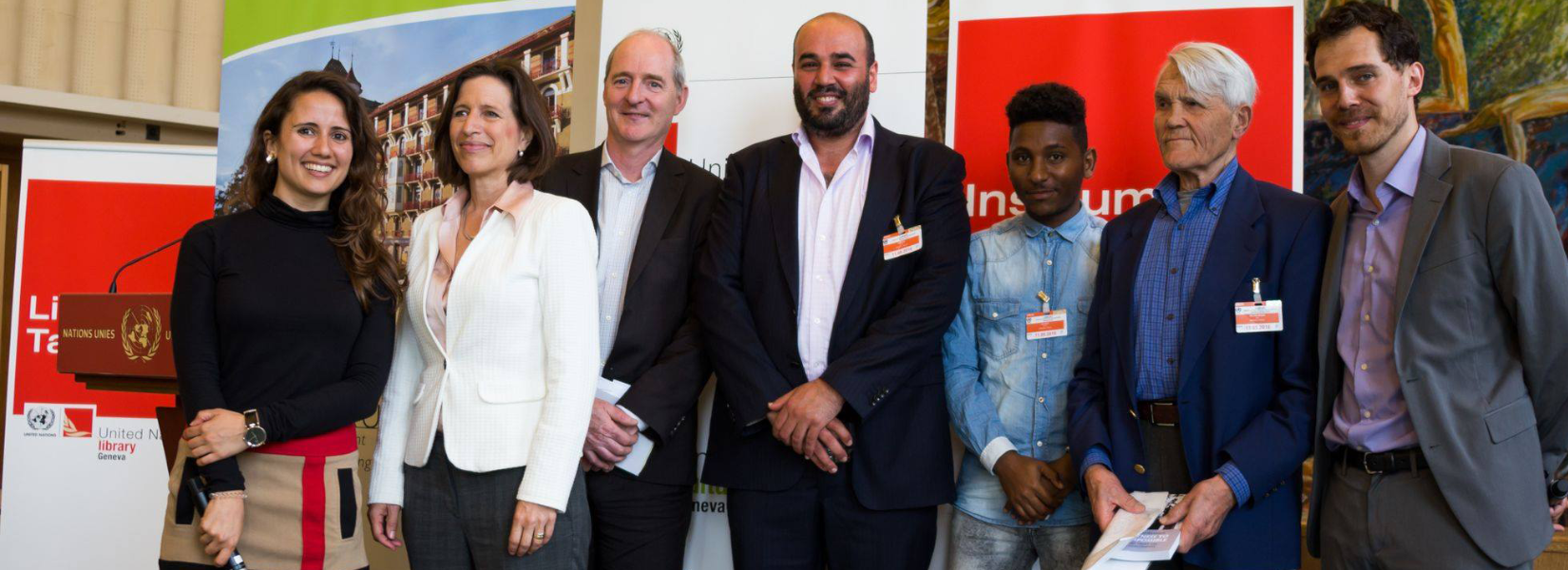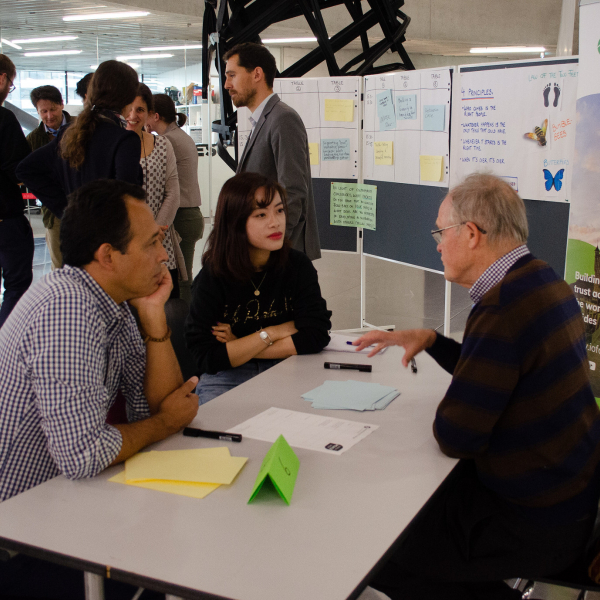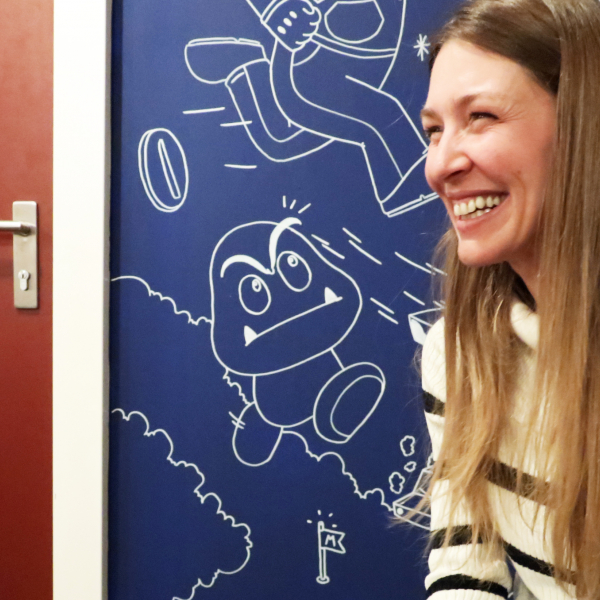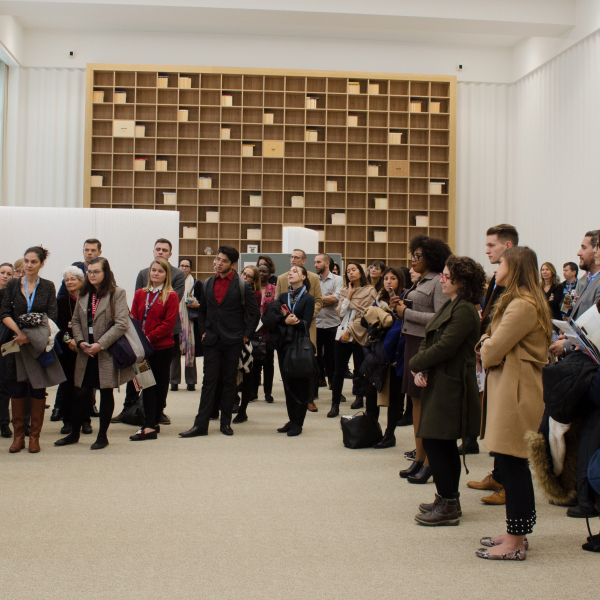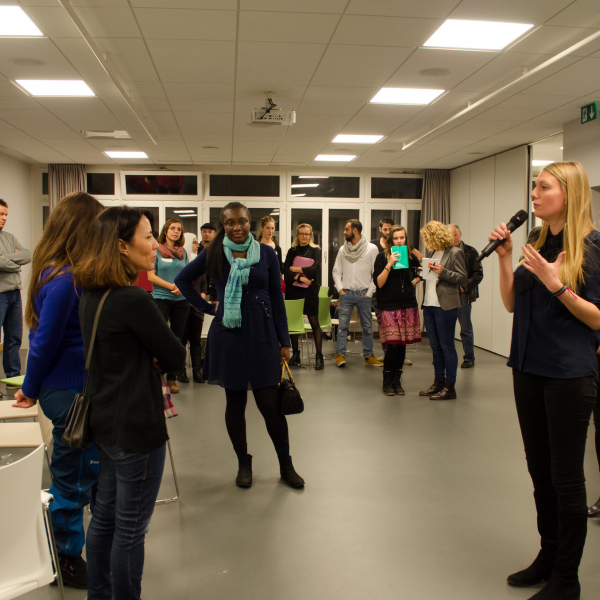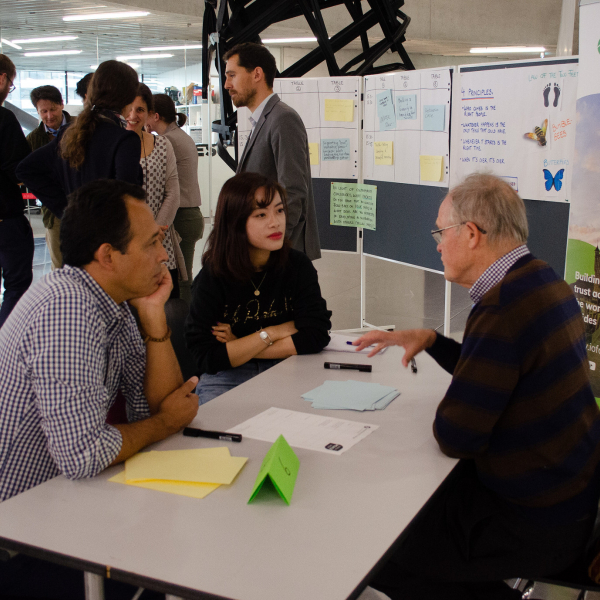A Human Book Experience at the UN Library
A Human Book Experience at the UN Library
12/05/2016
What’s trust got to do with migration? This is one of the questions answered by human books who participated in the Human Library event organized by CAUX-IofC at the United Nations Library in Geneva on 11 May 2016. The event was part of a range of activities organized in celebration of the foundation’s 70th anniversary. Instead of checking out regular books, participants were invited to listen to personal stories of 5 human books sharing their experiences of migration and to interact directly with them.
The event was kicked off by Cornelio Sommaruga, the honorary president of Initiatives of Change International, who stressed the importance of trust building in addressing the current migration crisis, noting that ‘there will be no sustainable peace without justice, no justice without trust and no real trust without forgiveness.’ Mr. Sommaruga referred to the reconciliation efforts made in Caux in 1946 to build trust among former enemies France and Germany as a crucial model for establishing mutual trust and understanding in Europe today.
‘Readers’ were then invited to pick from a catalog of 5 ‘human books’ they wanted to learn more about: Melissa Fleming, Head of Communications and Chief Spokesperson for UNHCR; Dr. Imad Karam, Executive Director of Initiatives of Change International; Jens J. Wilhelmsen, Norwegian writer having worked for Initiatives of Change for 60 years; Leonard Doyle, Director of Media and Communications for IOM; Huruy Gulbet, Eritrean refugee born in Sudan and student in Geneva.
Thank you to our human books + @CAUXIofC + Participants for today's event. We hope you enjoyed it as much as we did!
- UN Library at Geneva (@UNOGLibrary) May 11, 2016
Groups of 10 to 20 curious ‘readers’, including Director-General of the United Nations Office at Geneva Michael Møller, then gathered around their human book to hear about engaging stories ranging from the perilous journey of refugees fleeing conflict and persecution across the Mediterranean to building trust at a personal level between discouraged and broken-hearted Europeans after World War II.
The intimate setting of the UN library allowed for real personal exchanges: to hear the stories first-hand and to have the opportunity to ask questions about the storyteller’s experience and life. Participants were then invited to share the compelling stories they were told and the emotions and thoughts that were triggered by these stories in small groups.
As ‘readers’ and ‘human books’ were brought closer together by their shared experience, the human library became a unique platform to promote understanding between people and to challenge stereotypes about migration. As noted by human book Jens J. Wilhelmsen, the key to immigration in Europe is integration and ‘integration is welcoming people and trusting in the contribution that they can make.’
This is what the Human Library at the UN library was all about: sharing personal stories of migration with each other and building trust to understand the other.
